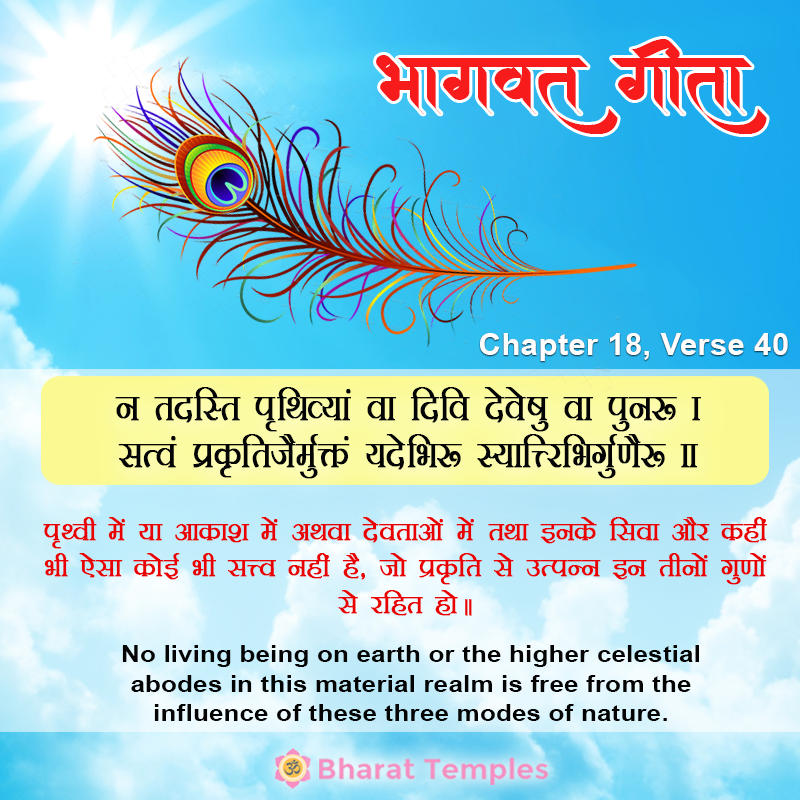न तदस्ति पृथिव्यां वा दिवि देवेषु वा पुन: |
सत्वं प्रकृतिजैर्मुक्तं यदेभि: स्यात्त्रिभिर्गुणै: ||
na tad asti pṛithivyāṁ vā divi deveṣhu vā punaḥ
sattvaṁ prakṛiti-jair muktaṁ yad ebhiḥ syāt tribhir guṇaiḥ
भावार्थ:
पृथ्वी में या आकाश में अथवा देवताओं में तथा इनके सिवा और कहीं भी ऐसा कोई भी सत्त्व नहीं है, जो प्रकृति से उत्पन्न इन तीनों गुणों से रहित हो॥40॥
Translation
No living being on earth or the higher celestial abodes in this material realm is free from the influence of these three modes of nature.
English Translation Of Sri Shankaracharya’s Sanskrit Commentary By Swami Gambirananda
18.40 Na asti, there is no; tat, such; sattvam, entity, living creatures like men and others, or non-living things; prthivyam, in the world; va punah, or, again; an entity devesu, among the gods; divi, in heaven; yat, which; syat, can be [-this is connected with the preceding portion ‘na tat, there is no such (entity)’-]; muktam, free; hih, from these; trubhih, three; gunaih, gunas, sattva etc.; prakrti-jaih, born of Nature.
It has been said that the entire transmigratory state together with its roots, characterized by action, agent and resuls-consisting of the gunas, sattva, rajas and tamas-, and projected by ignorance, is an evil. And this also has been said through the imagery of the Tree in the verse, ‘৷৷.which has its roots upward’ etc. (15.1). It has been further said that, ‘after felling that (Tree), with the strong sword of detachment, thereafter, that State has to be sought for’ (15.3-4). And, as to that, since all things consist of the three gunas, there arises the impossibility of the eradication of the cause of worldly existence. Hence, it has to be shown how it can be eradicated. Besides, the purport of the scripture Gita has to be summed up, and it has also to be shown that the import of all the Vedas and the Smrtis, which must be put into practice by those who long for the Goal of human life, is verily this much. Hence begin the verses, ‘The duties of the Brahmanas, the Ksatriyas and the Vaisyas৷৷.’, etc.

